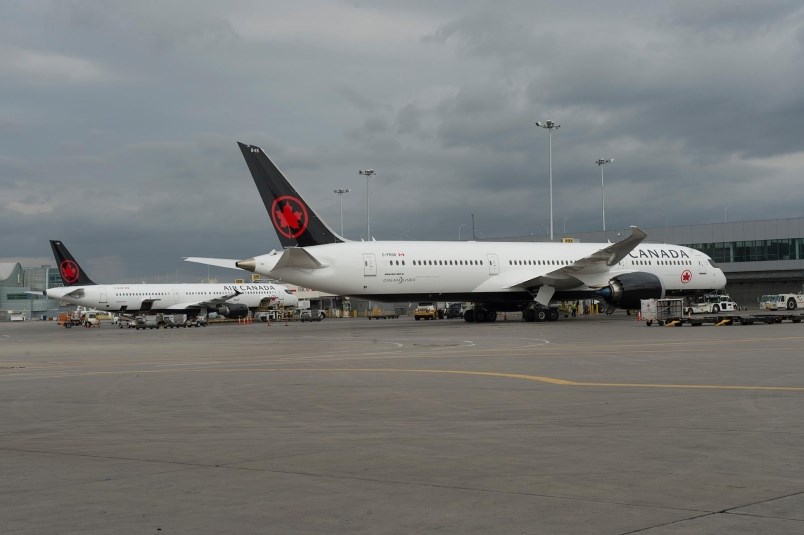Provincial health officer Dr. Bonnie Henry called out airlines Tuesday for their poor collection of passenger data, describing the situation as a “disconnect in the system,” during her first COVID-19 update after the B.C. Day long weekend.
Flights flagged for a possible COVID-19 community exposure have become a regular occurrence at places like Vancouver International Airport. Since early June, the BC Centre for Disease Control has listed 36 flights passing through the province’s airports, including 17 international flights and 19 domestic.
“It’s something we’ve known about for a long time,” Henry said Tuesday of the exposures and lack of detailed reporting. “It would shock you to see what we get from the airlines when we request a flight manifest.”
Henry said that while airlines collect detailed information on pricing, that practice rarely extends to the collection of reliable personal information should health officials need to trace a public exposure event.
“The information is being collected for a different purpose,” she said. “When we need that information to figure out who was around, all they know is it’s somebody who paid $66 for that seat.”
Where a passenger lives, where they will be staying and an accurate phone number are the building blocks of contact tracing. But in March and April, when the contact tracers were tracking down leads of every suspected traveller with COVID-19, Henry said it sometimes “took days” to get useable information.
“And when we moved to everyone being quarantined and everyone else just not travelling, we suspended that,” she said.
Henry’s comments come on a day in which she reported 146 new cases since Friday.
“We’re now at the point where we need to find everybody again, so a really important thing would be to get accurate information where we can contact people quickly,” added Henry.
Of the 36 flights flagged since early June, 17 were operated by Air Canada. In a statement to The Tri-City News, the airline said it provides flight manifests within 24 hours to “any Canadian health authority upon request” and that flight manifest information “includes names, contact information, seat location, itinerary and more.”
Passenger contact information, wrote a spokesperson for Air Canada, is collected at the time of booking and again when they check in.
“We have not had any requests for flight manifests from any Canadian health authority recently, and specifically from B.C. since March 2020,” wrote the airline in contradiction to Henry’s statements.
“B.C. has only very recently requested that we confirm seat numbers for specific passengers, and we can confirm these were responded to within a few hours.”
The spokesperson said that both Air Canada and the National Airlines Council of Canada, which represents major airlines in Canada, have reached out to Henry’s office “on multiple occasions” to discuss any concerns, and that so far, they have “refused to get back to us.”
“Frankly, we are baffled by Dr. Henry’s comments.”
Read more from the Tri-City News



